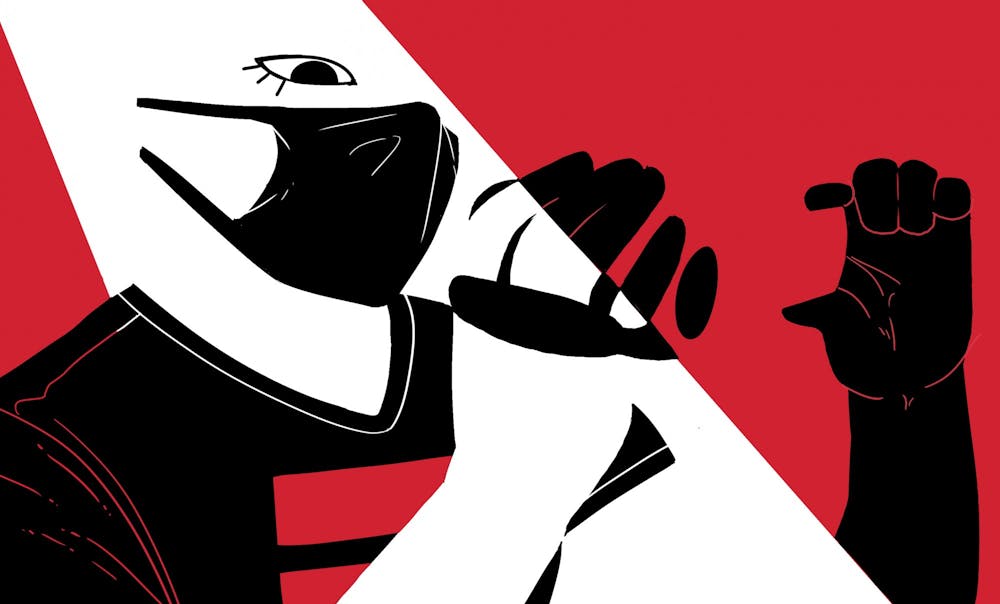Outrage after George Floyd was killed by a white Minneapolis police officer during an arrest sparked mass-demonstrations in the United States and the rest of the world.
The grassroots nature of the uprising seemed to leave many large news conglomerates trailing behind their local and alternative counterparts in the press. Unicorn Riot, a nonprofit news collective, has been identified as a crucial source for on-the-ground reporting of protests in Minneapolis and elsewhere.
Additionally, the widespread use of social media by demonstrators has captured instances of police brutality against demonstrators and facilitated communication among protestors in different cities. In light of these successes, we should renew our support of alternative media.
On the other hand, disproportionately favorable coverage of police by the mainstream press and their local affiliates has continued during the uprising. Police PR stunts, like images of riot cops kneeling with protestors, have received widespread circulation by mainstream media while undue focus has been placed on looting during the uprising.
In U.S. society, there is a general lack of media literacy, or the ability to understand what message is being sent by a given piece of media. Ideally, consumers of media should develop a degree of skepticism about the news as presented to them, and recognize what sort of implicit biases are present in the source.
The greater extent that alternative media is visible and protected, the more people will be able to question the mainstream media's reporting.
The category leap from the alternative to the mainstream press isn't always clear—for example, RT America, a Russian news network, is indisputably alternative while not being independent. In general, we should look to diversify and to criticize the news sources we use, especially during times of crisis.
However, Ray Stern, the news editor for the Phoenix New Times, embraces the "alternative" label.
"Alternative, is still, I think, used in a positive context," Stern said. "As an alternative weekly, we do stories that others may not do, or we maybe use an angle that others may not try."
The Phoenix New Times and other alternative publications often buck the trend of media homogenization, identified by sociologist John McManus as the tendency for news outlets to report the same stories in the same way.
"We're scrappy, and that's the kind of word I would use to describe our small editorial staff that has high aspirations, because we can do what a big media outlet can't do," Stern said. "Small can be a benefit sometimes."
Stern says mainstream media have adopted positions that only the alternative press held a few weeks ago. In light of this, he thinks the main distinguishing feature of the alternative press is a commitment to ethics.
"We're not going to ignore inconvenient facts or angles that maybe you don't think we should do because, 'Gee, you know, that might hurt someone's feelings'," Stern said.
"The New Times ends up being the first one to publish the video of an officer threatening to blow someone's head off because their family (allegedly) stole from a store, leading to the officer getting fired."
Beyond simply reading such publications, Stern says that supporters of the alternative press can show their support by considering working for alternative publications, especially students of color.
"One way to support alternative weekly newspapers, and really alternative journalism of any kind, is to consider doing it, and think about the difference between full-blown advocacy journalism and journalism which is viewed as possibly more credible," Stern said, "and the New Times can balance both."
Another way to support alternative or dissident voices in journalism is to fight back against increasing government infringement on press freedom.
Independent journalist Max Blumenthal was arrested last year on charges, later dropped, that he assaulted a woman at a pro-Venezuela event in Washington, D.C. Also last year, PressTV journalist Marzieh Hashemi was detained without charges by the FBI for 10 days before being released—not to mention the extended detention without trial of WikiLeaks founder Julian Assange at the U.S.'s bequest.
Now more than ever, I think we should look to the relative margins of journalism and of media, and rethink our notions of credibility to include a wider range of voices than offered by the mainstream.
Reach the columnist at smisceni@asu.edu or follow @IMiscenich on Twitter.
Editor’s note: The opinions presented in this column are the author’s and do not imply any endorsement from The State Press or its editors.
Want to join the conversation? Send an email to opiniondesk.statepress@gmail.com. Keep letters under 500 words and be sure to include your university affiliation. Anonymity will not be granted.
Like The State Press on Facebook and follow @statepress on Twitter.




